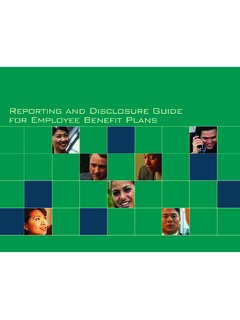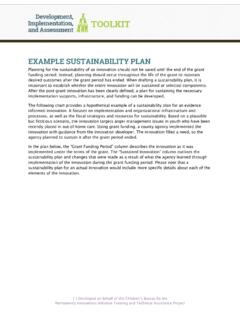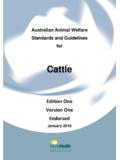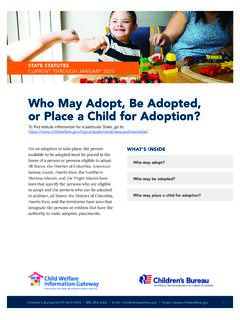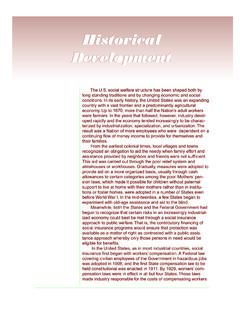Transcription of Horses Welfare Codes of Practice - GOV.UK
1 Code of Practice for the Welfare ofHORSES, ponies , DONKEYS AND their HYBRIDSCode of Practice for the Welfare of Horses , ponies , Donkeys and their HybridsPresented to Parliament pursuant to section 15 of the Animal Welfare Act 2006 December 2017 Crown copyright 2017 This publication is licensed under the terms of the Open Government Licence except where otherwise stated. To view this licence, visit we have identified any third party copyright information you will need to obtain permission from the copyright holders publication is available at enquiries regarding this publication should be sent to us atDepartment for Environment, Food and Rural Affairs17 Smith SquareLondonSW1P 3 JRISBN 978-1-5286-0172-6 CCS1217633088 12/17 Printed on paper containing 75% recycled fibre content minimumPrinted in the UK by the APS Group on behalf of the Controller of Her Majesty s Stationery OfficeContentsIntroduction.
2 6 The duty of to provide a suitable environment for your to provide a suitable diet for your Condition Scoring - Horses ..20 Body Condition Scoring - Donkeys ..21 How to provide for the behavioural needs of your horse ..22 How to provide the right companionship for your horse ..24 How to keep your horse healthy and protect them from pain, suffering, injury and disease ..26 Annex 1 - Tethering ..32 Annex 2 - Horse passports ..34 Annex 3 - Sources of further information ..35 IntroductionOwning and caring for a horse can be a source of great enjoyment but it is also a big responsibility with a long-term caring and financial commitment. The Animal Welfare Act 2006 ( the Act ) requires you to ensure that any horse, pony, donkey or mule for which you are responsible, whether on a permanent or a temporary basis: has a suitable environment to live in; has a healthy diet (including fresh clean water) is able to behave normally; has appropriate company; and is protected from pain, suffering, injury and is your responsibility to fully understand your horse s Welfare needs and what the law requires you to do to meet those needs.
3 Breach of a provision of the Code is not an offence in itself, but if proceedings are brought against you for a Welfare offence the Court will look at whether or not you have complied with the Code in deciding whether you have committed an offence. You should not cause any unnecessary suffering to your or any other animal; this could constitute a serious offence under the Act. Further advice should be sought from a veterinary surgeon who can provide advice on horse Welfare , particularly health, or an appropriately qualified and experienced horse care specialist. Other sources of information are listed in Annex this Code of Practice the term vet will be used to refer to a veterinary surgeon and the term Suitably Qualified Person or SQP will be used to refer to a person who is permitted to prescribe and supply some veterinary medicines in the UK, most of which have preventive uses ( external and internal anti-parasitic medicines, farm animal vaccines and nutritional supplements).
4 In this Code Equine or Equidae is intended to cover all: Domestic Horses and ponies (including feral and semi feral ponies ); donkeys; and hybrids (including mules). Where the word horse is used in this Code, the reference applies to all Equidae. If information relates to donkeys specifically, reference to donkeys will be made. For the purpose of this Code, a keeper means a person who has day-to-day charge of the horse. You will also find reference in the code to experienced horse professionals . These are people who, through qualification or experience, can provide expert advice on Welfare and some aspects of equine of Practice for Horses , ponies , donkeys and their hybridsThe duty of careUnder the Act animal owners and keepers are under a legal duty of care for the animals for which they are responsible on a permanent or temporary basis. A person could therefore be responsible for an animal if they own it or are in charge of it.
5 An owner has ongoing responsibility for their animal even if another person is in charge of it. A parent or guardian of a child under 16 years old is responsible for any animal that is owned or cared for by the child. This ensures that an adult can normally be identified as a person responsible for an animal. If an owner leaves an animal in the care of another person, it is the owner s duty to ensure the keeper is competent and has the necessary authority to act in an for an animal includes having an understanding of the specific Welfare needs, including health, of the animal and having the appropriate knowledge and skills to care for the responsible for animals will also have to comply with the legislation and should be aware of this Code of Practice . They should also know when to seek advice and help and who to taking on a horse potential owners or keepers need to consider a number of important issues to ensure that they will be able to meet their duty of care towards the horse (as described in sections 1-5).
6 Issues that should be considered prior to acquiring a horse include: Your skills and experience. You should consider how much experience you have and whether you have the practical skills and knowledge to care for a horse properly. You should also consider your riding/driving skills and what steps you can take to improve and maintain them. This will help to reduce the risk of the horse developing behavioural problems when ridden or driven. Consideration should be given to gaining skills and experience with Horses prior to horse ownership. Gaining work experience at a riding stables, undertaking voluntary work with Horses or completing relevant qualifications will all help to improve your skills. The cost of keeping a purchase cost of a horse is likely to be minimal compared to the ongoing costs of care over the horse s lifetime. You should also expect ongoing costs to rise as the horse ages or it approaches the end of its life.
7 The ongoing costs will vary depending on the needs of the individual horse, where it is kept and what it is used for. As a potential owner, you should draw up a budget based on your own circumstances to determine whether the ongoing costs are affordable, and how many, if indeed any, Horses you can afford to care for. You should consider costs such as livery (costs can vary significantly depending on the type do it yourself, full, part or working livery), feeding, bedding, stable and pasture, worming, veterinary fees (for both routine and emergency care), farriery, buying tack etc. You should consider insuring your horse in case of unexpected health problems. You should also consider the fact that you can be held legally responsible for any damage your animal may cause, even if you have taken precautions to avoid this, and should ensure you have an appropriate level of public liability insurance in place.
8 Taking a horse on a short-term or long-term responsibilities and ongoing costs of loaning a horse will be the same as owning a horse, although you will not be the horse s legal owner. Therefore, an agreement should be put in place between yourself and the legal owner of the horse, detailing exactly what care and costs you are responsible for and what to do if you wish to terminate the agreement. Loan periods can end at any time and so you should be Code of Practice for Horses , ponies , donkeys and their hybrids7prepared for this situation should it arise. This is particularly important for the owner of a horse on loan who may need to make arrangements to take back and care for the horse at short notice. The type of horse that is most appropriate for your ability and level of experience. It is important to find the right animal when taking on a horse as this can prevent many problems in the future.
9 You should consider factors such as the horse s age, breed, gender, intended use and level of training. You should also consider whether the horse is an appropriate size for your height and weight. It is useful to try a number of different Horses prior to purchase for the purposes of comparison and the advice of an experienced horseperson should always be sought. Before purchasing a horse you should have it examined by an independent veterinary surgeon to ensure it is physically fit for and capable of its intended use. The facilities that are available to you. You should ensure that you are able to meet the horse s need for safe and suitable shelter and pasture, whether this is through a livery yard, rented land or land that you own. Contingency plans in case of need to consider what contingency plans you should have in place in case of emergency, for example: the provision for stabling and transport should emergency veterinary treatment be required; having the means to isolate a horse if necessary; alternative arrangements for the care of the horse should the keeper become incapacitated or goes away for work or on holiday or if the horse should outlive its owner.
10 These contingency arrangements should be reviewed when there is any change in the owner s, keeper s or horse s circumstances. Plans for should have a plan in place in the event that your horse needs to be euthanased, either as a quality of life decision or in the event of serious injury or illness. Although this may be difficult to think about, it is important to consider the financial and practical aspects of euthanasia should the worst needs of Horses are explained in more detail in this Code; however, an individual horse may have other needs that must be met to ensure its wellbeing. If you are unsure what these might be it is important that you seek advice from an appropriate source of information vet, an experienced horse professional or an appropriate equine Welfare organisation. Contact details for such organisations can be found in the Sources of Information at the end of the Code of Practice .










